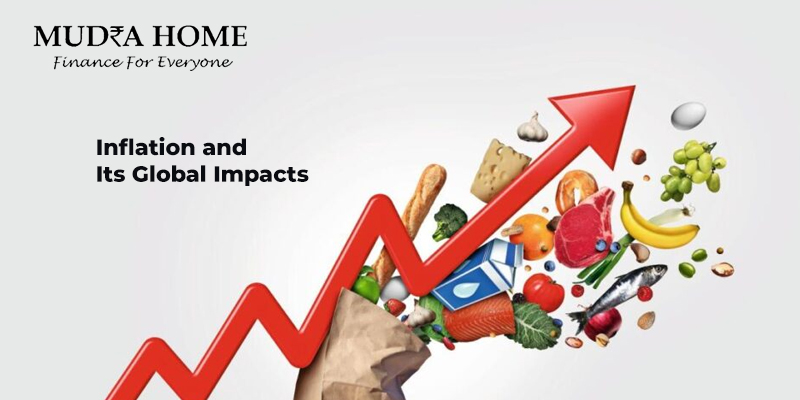
Inflation, often described as the silent thief, is a critical factor shaping the global economy. Characterized by the general increase in prices and the consequent decline in purchasing power, inflation is a multifaceted phenomenon affecting nations, businesses, and individuals alike.
At its core, inflation can arise from various causes. Demand-pull inflation occurs when consumer demand outpaces supply, leading to a price increase. Cost-push inflation, on the other hand, stems from the rising cost of production, like increased labor costs or raw material prices. Then there’s built-in inflation, which is often the result of a wage-price spiral. Recent global events, especially the post-COVID economic resurgence and supply chain disruptions, have added complex layers to these traditional causes.
The ripple effects of inflation are far-reaching. One of the most palpable impacts is on consumer purchasing power. As prices rise, the same amount of money buys fewer goods and services, impacting living standards worldwide. Inflation also reshuffles the deck in global trade and investment. Countries with higher inflation rates often see their currency value decline, affecting their trade balance and attractiveness to foreign investors.
Different sectors respond uniquely to inflation. The real estate market, for instance, often sees a surge in property values, impacting housing affordability. Retirement savings and pension funds can lose value, affecting long-term financial security. Stock markets may also react, as investors seek hedges against inflation, often moving towards commodities or inflation-protected securities.
Central banks and governments have a toolkit for combating inflation. Common measures include adjusting interest rates to control money supply and implementing fiscal policies to stabilize prices. On an individual level, strategies to mitigate the effects of inflation might include diversifying investment portfolios or focusing on long-term financial planning.
Understanding the global impacts of inflation is more than an academic exercise; it’s a necessity for navigating the modern economic landscape. With its pervasive influence, inflation remains a key consideration for policy-makers, investors, and consumers alike, underscoring the importance of strategic adaptation in an ever-evolving economic environment.